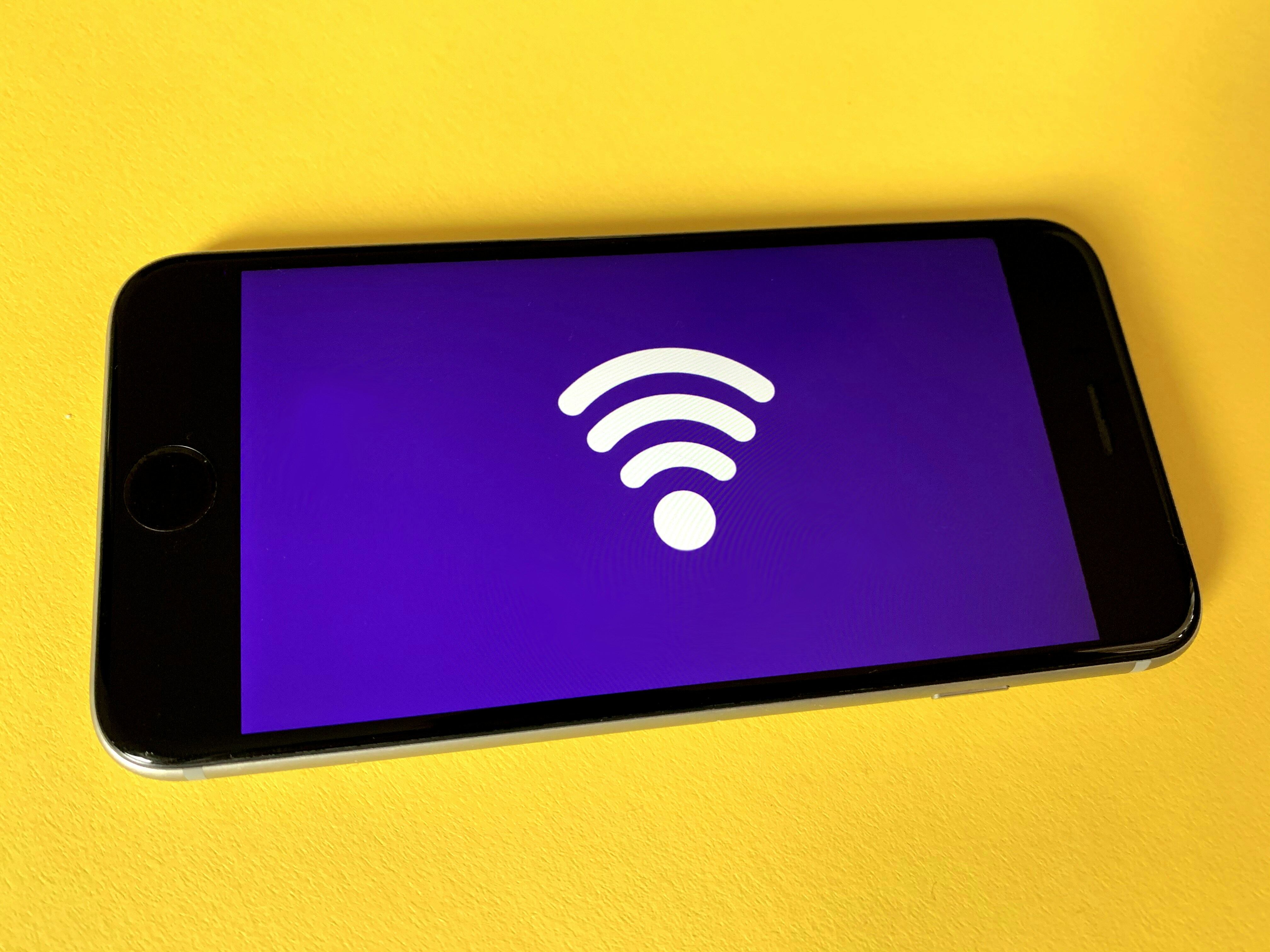7 Wireless Network Engineer Technical Skills to Recruit For
06 Aug, 20249 minsA wireless network engineer plays a vital role in designing, implementing and maintaining wi...

A wireless network engineer plays a vital role in designing, implementing and maintaining wireless networks. With wireless technology playing a pivotal part in the lives of the global population and businesses worldwide, the need for specialist talent to uphold the seamlessness and reliability of wireless communications is imperative. But what skills and traits should talent within this space possess?
To support your network recruitment efforts and approach to hiring a top wireless network specialist best, we’ve highlighted seven core technical skills to look for in a wireless network engineer. We’ll also outline other key traits to seek in new hires, including soft skills, educational background, and experience. Understanding these essential skills can help you effectively identify the candidates capable of maintaining high-performing wireless networks for your business.
In this guide, we’ll cover the following:
- Technical skills to look for in a wireless network engineer
- Other traits to look for in a wireless network engineer
Technical skills to look for in a wireless network engineer
A specialist wireless network engineer must possess expertise across a broad range of technical skills. In this section, we’ll highlight the top networking engineering skills to look for in a candidate, such as a comprehensive overview of wireless networks, including design and security. We’ll also mention skills surrounding WLAN, LAN and WAN, switches, routers, RF engineering and troubleshooting to showcase the skills to consider in your next wireless network specialist hire.
1. Wireless Network Systems
One of the primary skills to look for on the CVs of a wireless network engineer encompasses a range of traits around their expertise across wireless network systems. For example, within a wireless network system, the market's top engineers should have the skills to design and deploy existing Wi-Fi setups. They should be able to audit existing wireless networks and make recommendations to enhance end-to-end traffic and performance for your business.
After providing recommendations to optimise a wireless network, specialist engineers should have the skills to implement and configure these enhancements. These skills can ensure smooth data transmission and seamless connectivity around the cloud. Talent should use these wireless network system skills to conduct audits and reviews regularly, configuring the networks accordingly to ensure they perform at the levels required by the business and its users.
Wireless network engineers should be familiar with utilising industry-standard tools to monitor and maintain wireless network systems. They should also understand the common types of network security threats and have the skills needed to handle potential attacks or at least collaborate with network security engineers to ensure a company's wireless network system is compliant and secure from potential breaches.
2. WLAN (Wireless Local Area Network)
As you search for your next wireless network engineer, another top skill to scope the market for falls under WLAN. Having the expertise of WLAN is essential to any business that relies heavily on connecting the devices of its employees within a local office space.
Wireless network engineers should have the design skills to draw up a plan for these types of networks. They should also be able to bring their ideas to life and implement these designs to ensure an organisation's WLAN systems can support the wireless connection needs of hundreds of users.
A top wireless network specialist should be able to create AP groups and service set identifiers (SSIDs) to ensure the WLAN system operates seamlessly. They should also have the traits to spot opportunities to add features, such as introducing Voice over Internet Protocol (VoIP), to enhance the efficiencies of the WLAN system.
3. LAN and WAN
Whether you’re looking to hire a permanent or contract wireless network engineer, another skill you should consider from the talent you screen in the hiring process is LAN and WAN (Local Area Network and Wide Area Network) skills. These skills are essential for any wireless network specialist and serve the following purposes:
- LANs: Cover more localised smaller areas such as households or office spaces.
- WANs: Have a much broader reach geographically, allowing for seamless connections across whole cities and regions.
These types of wireless network engineer skills are crucial for ensuring your business has efficient connections, enabling you to transmit data worldwide, be it internally or externally. A top wireless network specialist will be able to apply advanced routing protocols such as Open Shortest Path First (OSPF) to further ensure LAN and WAN technologies deliver seamless connections and data paths regardless of where your business is located and who you interact with.
4. Routers
Speaking of routing protocols, another critical wireless network engineer skill to consider in your network recruitment strategy revolves around routing. The concept of routing in wireless communications plays a significant part in connecting traffic between multiple networks and is, therefore, a trait you should have within your workforce.
A top wireless network specialist will be able to design, test and implement protocol configurations to meet the requirements of a network. They’ll ensure a business has consistent connections with minimal issues, interrupted service or downtime.
When reviewing CVs or at the interview stage, consider talent with expertise in industry-renowned Cisco routers or Windows servers. Doing so could ensure you’re hiring an individual with the expertise to deal with real-world wireless network scenarios and challenges.
5. Switches
Going hand-in-hand with routers are switches, which connect multiple devices across a network, ensuring seamless data flow and communication. Using switches effectively is another core skill to look for in talent when hiring a wireless network engineer.
A wireless network specialist worth hiring will be familiar with the various switches used in network infrastructure and how to manage and configure them. You could question your candidates on the types of switches they have experience managing, such as Cisco Nexus or Catalyst switches. If they have an awareness or proficiency working on commonly used switches, perhaps the types used by your business, their skill set could be worth investing in.
Top wireless network engineers should also be skilled in deploying gateway redundancy, which ensures networks remain available to users with authorised access. They should also be able to integrate features such as the Cisco ACS server with the Active Directory, allowing for single sign-on security to ensure the switches and routers used in a network environment are secure.
6. RF Engineering
Radio Frequency (RF) skills are another fundamental trait to consider in your network recruitment strategy when hiring wireless network engineers. RF carries data between devices and plays a significant part in wireless communications. Therefore, having talent equipped with the skills to harness RF engineering is essential.
A wireless network specialist will typically use RF engineering to design and deploy networks for a business. When doing so, they’ll often conduct RF interference reports and surveys to validate their designs and ensure the networks work optimally. They’ll use various planning tools and automated processes to conduct surveys and design heat maps to troubleshoot issues and identify areas of best coverage and bandwidth.
Professionals with top wireless network engineering skills will also be proficient in designing, installing, and maintaining cellular networks, including analogue and digital. Network engineers with these skills can ensure the wireless networks of your business and clients are efficiently deployed, well-maintained, and able to meet the high demands of modern wireless connectivity.
7. Troubleshooting
The last but certainly not least skill to look for in a wireless network engineer is their ability to troubleshoot network-related issues. Troubleshooting skills are essential for these types of network engineers, focusing on identifying and resolving various technical issues. A top wireless network specialist will use their troubleshooting skills to analyse network connectivity, supporting fixing problems relating to hardware and software malfunctions.
Wireless network engineers will use their troubleshooting skills in a collaborative effort with other engineers within the network engineering team. This collaboration will fix connectivity issues to ensure a business avoids network downtime and experiences consistent reliability and optimal performance.
They will also work on designing and implementing router troubleshooting protocols. These could include Border Gateway Protocol (BGP) and Enhanced Interior Gateway Routing Protocol (EIGRP), vital for maintaining seamless data flows through point-to-point circuits and microwave links. The market’s best wireless network professionals will also track backhaul networks and mobile wireless routers to combat potential and emerging technical problems.
Since we’ve covered the core technical skills to consider in your network recruitment strategy, let’s focus on the other traits to look for in a wireless network engineer.

Other traits to look for in a wireless network engineer
During the network recruitment process and your efforts to hire a wireless network specialist, you should also consider other traits in candidates besides their technical ability. These traits can significantly enhance a candidate's effectiveness and suitability for the position, ensuring you hire a top wireless network engineer who can power the future of your business.
One trait to look for in a wireless network engineer is their experience working in various network environments. Doing so allows you to assess a candidate's suitability for the role and if their experience is relevant to your business or could enhance how your network engineering team operates. If a wireless network specialist has hands-on experience in designing, implementing and maintaining wireless networks, they could be worth hiring.
Soft and transferable skills, combined with a technical understanding of networks, such as communication, problem-solving and time management, can be valuable assets to look for in a wireless network engineer. You may have talent within your existing network team who could transfer into wireless networking jobs with the appropriate training and upskilling.
It’s certainly worth considering the educational background of a wireless network engineer candidate. Bachelor’s degrees or master’s degrees in network engineering, information technology, computer science, telecommunications, or a similar subject can all be relevant traits of a wireless network specialist.
Additionally, if a wireless network engineer has the following industry-renowned certifications, they too could be worth hiring:
- Certified Wireless Network Professional (CWNP)
- Certified Information Systems Security Professional (CISSP)
- Cisco Certified Network Associate (CCNA)
- Security and Certified Ethical Hacker (CEH)
- Cisco Certified Network Professional (CCNP
These certifications are highly regarded and can validate an individual's expertise in wireless networking, network security, and ethical hacking.
Rounding up the skills to look for in a wireless network engineer
Overall, when it comes to hiring a proficient wireless network engineer it’s crucial to evaluate candidates on the technical skills and other valuable traits highlighted in this guide. Technical skills such as expertise in wireless network systems, WLAN, LAN and WAN, routers, switches, RF engineering, and troubleshooting are all worth screening your future talent for.
As part of your network recruitment strategy, you should seek candidates who demonstrate proven experience across diverse network environments and various soft and transferable skills. They should also possess relevant educational backgrounds and industry-recognised certifications such as CWNP, CISSP, CCNA, CEH, and CCNP.
Focusing on these criteria can help you identify top candidates capable of driving innovation and maintaining high-performance wireless networks for your business.
If you found this guide useful, check out our piece on the 6G Networks: The Future of Wireless Communications.
Power your future network recruitment strategy
If you’re considering hiring a wireless network engineer to power your business, we can help. As experts in the network recruitment space, we have the industry know-how and an extensive candidate network to source the best talent on the market. Our wireless network specialist recruiters are here to guide you through the hiring process, connecting you with the contract and permanent professionals you require.
So what are you waiting for? Get in touch with our experienced network recruitment consultants and find the wireless network engineer you need to help you achieve your hiring goals.




